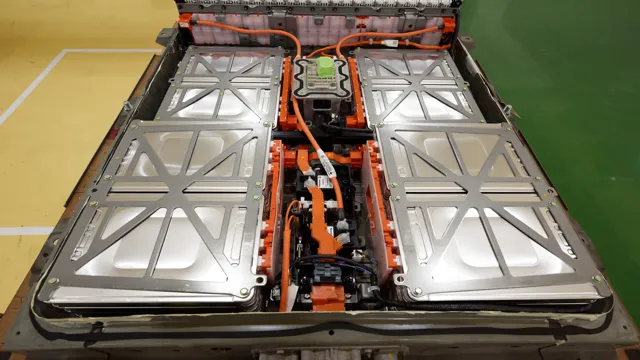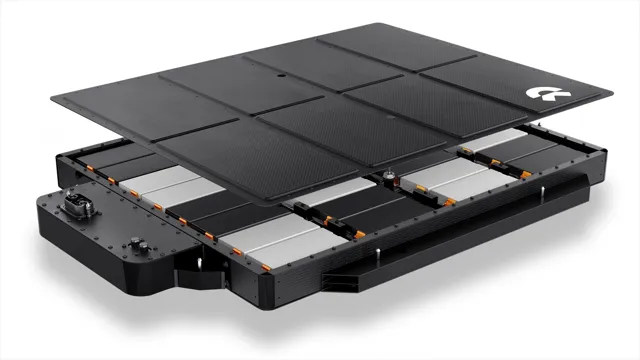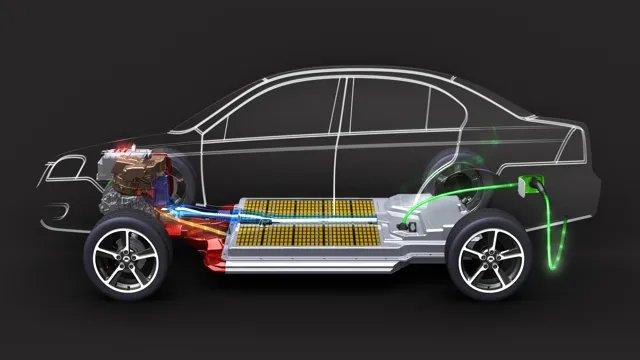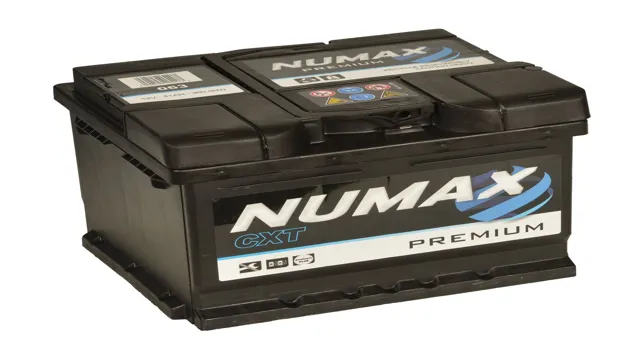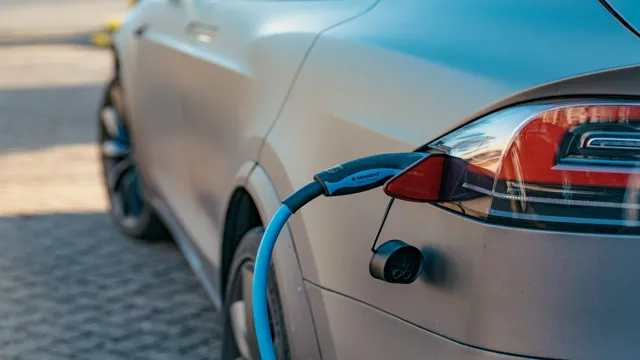Revolutionizing the Automotive Industry: Latest Electric Car Battery Tech News
Electric cars are quickly becoming increasingly popular in our world today. With the growing focus on reducing carbon emissions and mitigating climate change, electric cars are at the forefront of this agenda. As such, the demand for sustainable and energy-efficient electric cars has skyrocketed, and this has led to the development of more efficient batteries.
In recent years, there have been numerous innovations in this field, as a result of which electric cars are becoming more efficient and reliable. In this blog post, we will cover the latest electric car battery innovations that are leading the way in making the world a more sustainable place. From solid-state batteries to silicon anodes, we will discuss each of these innovations and how they are contributing to the growth of the electric car industry.
So, keep reading to find out how these battery innovations are changing the game for electric cars!
Tesla’s Battery Breakthrough
If you’re following the electric car battery tech news, you may have heard about Tesla’s recent breakthrough in battery technology. Elon Musk, Tesla’s CEO, announced that the company is working on developing a new type of battery that is cheaper, more powerful, and has a longer life span than current lithium-ion batteries. This new battery technology is said to be capable of powering an electric car for over 1 million miles before needing to be replaced.
That’s a big deal because it increases the lifespan of electric cars and makes them much cheaper to maintain over time. By improving battery technology, Tesla is bringing us closer to a world where electric cars are more affordable and accessible for everyone, which could have a significant impact on reducing greenhouse gas emissions. This is exciting news for electric car enthusiasts and it will be interesting to see how this new battery technology develops in the coming years.
New battery design could double range
Tesla has announced a new battery design that could potentially double the range of electric cars. This breakthrough was achieved by introducing a new battery electrode made from a high-energy material called lithium-rich nickel manganese cobalt oxide. The new design reduces the amount of costly cobalt used, which makes it more economical to produce.
Tesla claims that this new battery design will not only increase the range of electric vehicles but also reduce their cost and weight. It’s exciting news for electric car enthusiasts who’ve long sought more efficient and affordable ways to power their vehicles. The use of this new battery design could be a game-changer for the electric car market and could further advance the transition towards a sustainable future.
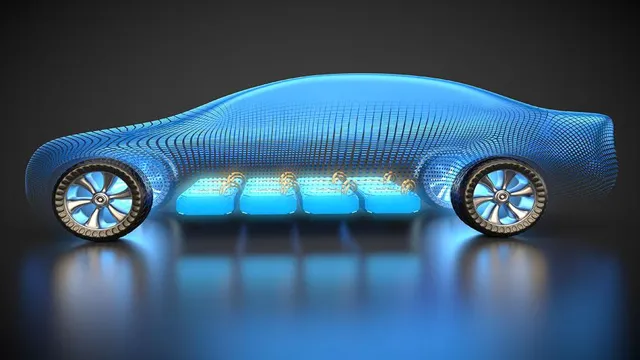
Implications for future electric cars
The recent battery breakthrough by Tesla has implications that can revolutionize the future of electric cars. With the new technology, Tesla aims to produce cheaper, more efficient, and longer-lasting batteries for electric vehicles. This can lead to wider adoption of electric cars by making them more affordable and practical for the average consumer.
The new battery technology can also increase the range of electric cars, making them suitable for longer trips without the need for frequent recharging. This breakthrough can also provide significant environmental benefits by reducing the reliance on fossil fuels and decreasing greenhouse gas emissions. Overall, the new battery breakthrough by Tesla has the potential to significantly transform the future of the automotive industry by making electric cars more accessible and sustainable for everyone.
Solid-State Batteries on the Horizon
If you follow electric car battery tech news, you might be excited to hear about the development of solid-state batteries. These batteries are a promising new technology that could revolutionize the electric car industry by providing more energy density, faster charging times, and longer life cycles. Solid-state batteries use a solid electrolyte instead of a liquid one, which makes them less prone to leaking and catching fire.
They also have higher energy density, which means they can store more energy in a smaller space. This could lead to lighter and more efficient electric vehicles. However, there are still some challenges to overcome before solid-state batteries become widely available, such as cost and scalability issues.
Overall, though, the future looks bright for electric car battery technology, and solid-state batteries could be a major player in that future.
Toyota’s development progress
Toyota has been making great strides in developing solid-state batteries for electric vehicles. These batteries are expected to have a higher energy density and faster charging times compared to traditional lithium-ion batteries. Toyota is leading the charge in this area, with plans to introduce electric cars with solid-state batteries as early as 202
This technology could be a game-changer for the electric car industry, as it could provide longer ranges and faster charging times, making electric cars more appealing to a wider audience. This development by Toyota is a potential breakthrough in the industry, bringing us one step closer to a more sustainable future.
Potential benefits over current lithium-ion batteries
Solid-state batteries are being touted as the next big thing in energy storage technology, offering potential benefits over current lithium-ion batteries. For starters, solid-state batteries use a solid electrolyte instead of the liquid or polymer electrolytes in lithium-ion batteries, making them safer as they are less prone to leakage or overheating. Another potential advantage is that solid-state batteries can offer higher energy density, meaning they can store more energy in a smaller package or weight.
Additionally, they can charge faster and last longer, making them ideal for electric vehicles and other portable devices. While there are still some technical challenges to overcome, experts predict that solid-state batteries will revolutionize the energy storage market in the coming years.
Challenges that still need to be overcome
Solid-State Batteries Solid-state batteries have been in development for many years and show great promise as a potential replacement for the lithium-ion batteries currently used in most electronic devices. However, there are still some challenges that need to be overcome before solid-state batteries can be widely adopted. One of the biggest challenges is improving their energy density, which is currently lower than that of lithium-ion batteries.
Solid-state batteries also have issues with producing a higher number of cycles and optimizing their manufacturing processes for mass production. Another challenge is reducing the cost of production, as solid-state batteries are more expensive to produce than their lithium-ion counterparts. Nevertheless, progress is being made, and researchers are optimistic about the potential of solid-state batteries.
They offer a higher level of safety, longer lifespans, and better resistance to temperature changes, making them particularly appealing for electric vehicles and other high-performance applications. As the technology continues to improve, solid-state batteries may soon become a reality, revolutionizing the world of energy storage.
Upcoming Battery Technology Events
Get ready for some exciting electric car battery tech news in the upcoming battery technology events! The advancements in battery technology are revolutionizing the automotive industry, and these events are the perfect platform to witness the latest breakthroughs first-hand. From the International Battery Seminar & Exhibit to the Electric & Hybrid Vehicle Technology Expo, each event focuses on advancing energy storage solutions and power systems for electric cars. Whether it’s the latest developments in lithium-ion batteries, solid-state batteries, or even hydrogen fuel cells, attending these events will help you stay up-to-date with all the latest electric vehicle trends.
So, keep your eyes peeled for all the exciting electric car battery tech news that’s yet to come!
Coverage of the International Battery Seminar and Exhibit
Are you looking to stay up to date on the latest advancements in battery technology? Look no further than the upcoming International Battery Seminar and Exhibit. This event gathers industry experts and newcomers alike to explore the latest innovations and discuss the future of battery technology. From electric vehicles to energy storage for renewable sources, the event covers a wide range of topics to satisfy anyone’s interests.
Stay informed and ahead of the curve by attending this event and networking with other professionals in the field. Don’t miss out on the opportunity to learn about the latest breakthroughs in battery technology and how they can shape the future.
Featured speakers and presentations
If you’re interested in the latest developments in battery technology, then mark your calendars for these upcoming events. One of the most anticipated conferences is the Battery Show, which takes place in Novi, Michigan, in September this year. The conference is the premier showcase of the latest battery technologies, ranging from electric vehicles to grid-level storage systems.
With over 700 exhibitors and 100 speakers, there will be no shortage of exciting presentations and discussions. Furthermore, The Battery Show offers a unique opportunity to network with industry experts and learn about cutting-edge research. Other events to take note of are the Advanced Automotive Battery Conference in San Diego, the International Battery Seminar in Florida and the Asia Battery Conference in China.
All of these events bring together leading experts and innovators, making them ideal platforms for discovering new ideas, technologies and business opportunities. Whether you’re a researcher, entrepreneur or investor in battery technology, these events are must-attends in your calendar.
Future of Electric Car Batteries
Electric car battery tech news is always exciting as we look towards the future of sustainable transportation. One of the most recent advancements is the use of solid-state batteries, which have the potential to offer higher energy density and faster charging times compared to traditional lithium-ion batteries. In addition, Tesla has announced plans to release a new battery technology that will last for over a million miles, drastically reducing the need for battery replacements.
This will not only make electric cars more reliable, but also more cost-effective for consumers. Another promising development is the use of recycled batteries, which can help reduce the environmental impact of battery production and disposal. As electric car technology improves, we can expect battery performance to continue to advance, making sustainable transportation more efficient and accessible for everyone.
Trends in battery technology research and development
Electric car batteries are a hot topic in the automotive and renewable energy industries, as they are a key component in the transition towards a greener future. There are several promising trends in battery technology research and development that are aimed at making electric cars more efficient and affordable. One such trend is the use of solid-state batteries, which offer higher energy density and longer lifespan than traditional lithium-ion batteries.
Another trend is the development of fast-charging batteries, which will enable drivers to charge their electric cars in just a few minutes. Additionally, researchers are exploring new materials for battery electrodes, such as silicon and lithium-sulfur, which could provide higher capacity and lower costs. These advancements in battery technology are expected to enable longer range and faster charging times for electric cars, making them a more practical and convenient alternative to traditional gas-powered vehicles.
Predictions for improved battery performance and affordability
The future of electric car batteries looks promising, with predictions of improved performance and affordability. Experts predict that batteries will become smaller, lighter, and more powerful, allowing electric cars to travel further without needing a recharge. Manufacturing costs are also expected to decrease as technology advances, making electric cars more accessible to the general public.
In fact, some experts predict that the cost of electric car batteries will be on par with gasoline-powered cars by 202 This will not only benefit the environment but also reduce the cost of operation for consumers in the long run. With more investment in battery research and development, the future of electric cars appears to be bright.
Conclusion
As we continue to witness remarkable advancements in electric car battery technology, it’s becoming clear that the days of combustion engines are numbered. With longer ranges, faster charging times, and improved efficiency, electric cars are turning heads and proving to be a viable option for the everyday consumer. As we move towards a greener future, it’s clear that electric car battery technology will play a crucial role in getting us there.
So, plug in your electric vehicle and let’s ride into a future of cleaner, more sustainable transportation!”
FAQs
What are the latest advancements in electric car battery technology?
The latest advancements in the electric car battery technology include solid-state batteries, lithium-ion batteries, and cobalt-free batteries, all of which aim to improve the battery life and efficiency of electric cars.
How long do electric car batteries last?
The lifespan of electric car batteries varies depending on the make and model of the car, but generally, they are expected to last for around 8-10 years or up to 200,000 miles.
What is the average cost of replacing an electric car battery?
The cost of replacing an electric car battery varies based on the make and model of the car, but it can range from $5,000 to $15,000 on average.
Are there any new government policies or initiatives to promote the adoption of electric cars?
Yes, many governments around the world are introducing policies and initiatives to promote the adoption of electric cars, including tax incentives, rebates, and infrastructure investments to support the growth of electric vehicle charging stations.
